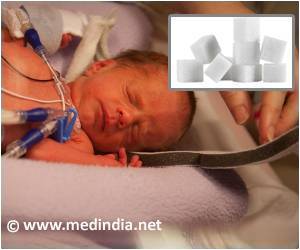ICU patients sleeping with earplugs have a 43 percent lower risk for confusion or delirium and have a better sleep perception, according to a study published in the journal Critical Care.
Intensive care patients usually develop delirium or confusion, characterized by a changed level of consciousness affecting the clarity and the coherence of their thinking, very early after admission.Not so much the sound of the ICU equipments, rather, phones ringing and people talking seem to disturb the sleep of the patients. Research shows that this disturbance in sleep could be the cause of early onset of delirium and confusion. This type of delirium sets in the first days after admission. The later onset of delirium is caused by the severity of illness, biomedical situation or is treatment related.
Bart Van Rompaey and colleagues from the University of Antwerp, Belgium, focused their research on the early onset of delirium and conducted a study to find out if reduction of sound during the night using earplugs could help prevent the early onset of intensive care delirium.
The trial included an intervention group of 69 patients sleeping with earplugs during the night and a control group of 67 patients sleeping without earplugs during the night. Patients were all adults and were expected to stay in the ICU for more than 24 hours. Delirium was assessed using NEECHAM scale and sleep perception was reported by the patient in response to five questions.
The results showed that –
• The use of earplugs during the night showed a 43 percent lower risk for confusion in the ICU. The beneficial effects seem to be strongest within 48 hours after admission.
• After the first night in the ICU, patients sleeping with earplugs reported a better sleep perception.
However, delirium in the ICU is a ‘multifactorial syndrome’ with associated risk factors, so the researchers caution that ‘sleeping with earplugs is no magical solution in the prevention of delirium’.
Again, the study included only a specific population in the ICU, so the results may not be applicable to all settings and all patients, they point out. Patients who did not like to use earplugs did not give their consent to the study. Interestingly, the larger group of refusals was women. They said that they prefer remaining in direct contact with their environment. The researchers suggest further research focusing on the reasons for this refusal.
The study concluded that earplugs could be a useful instrument in the prevention of delirium or confusion. ‘The use of earplugs, however, is cheap, easy and has apparently the same effect on all patients without the necessity to introduce more extensive structural or organizational changes on the ward’, say the investigators.
Reference: Van Rompaey B, Elseviers MM, Van Drom W, Fromont V, Jorens PG. The effect of earplugs during the night on the onset of delirium and sleep perception: a randomized controlled trial in intensive care patients. Crit Care 2012.
Source-Medindia















